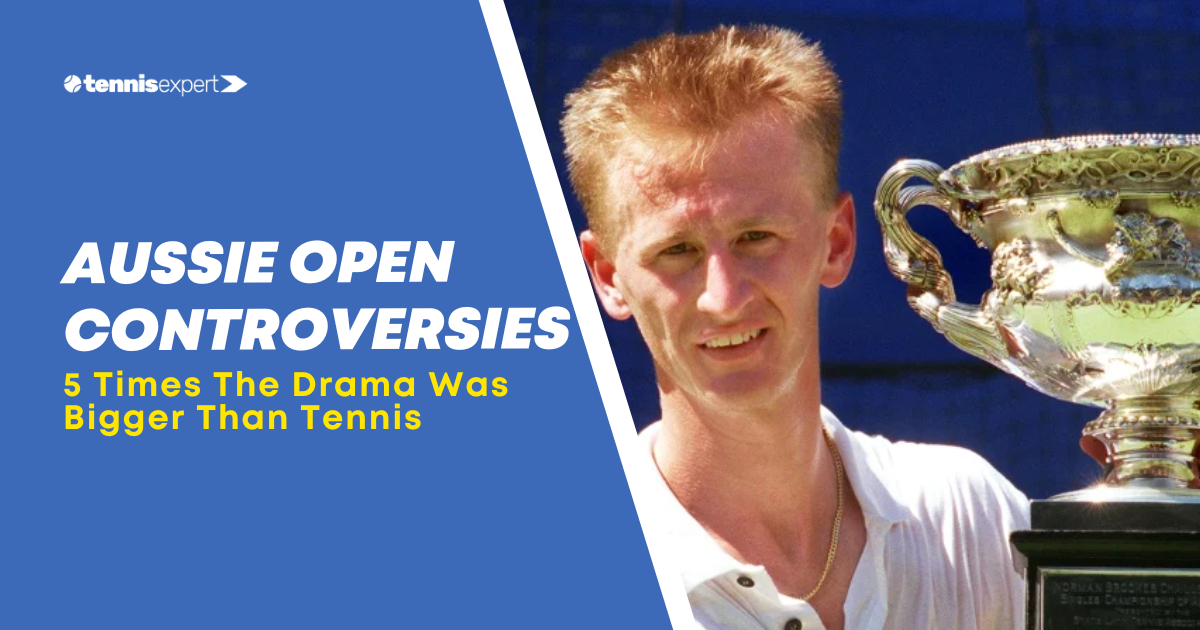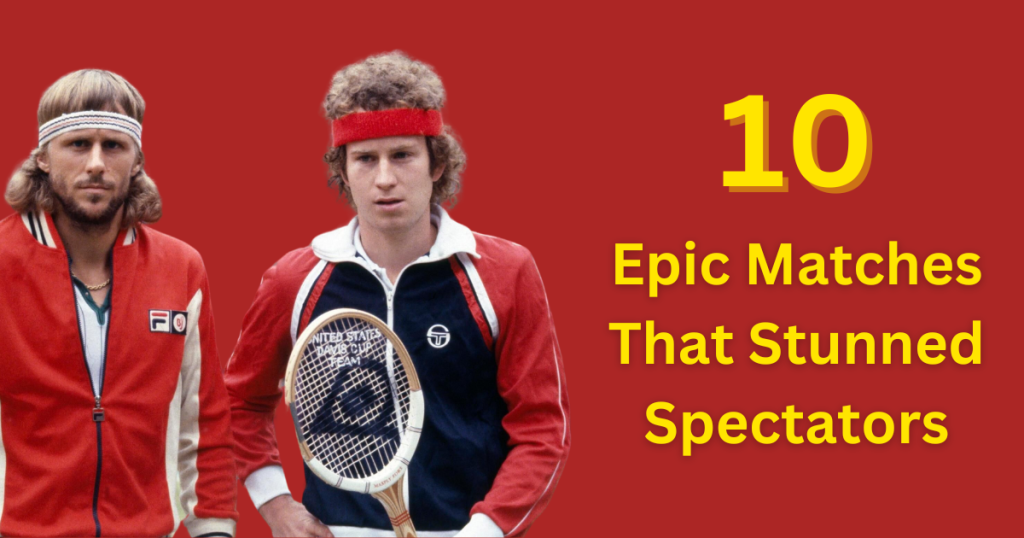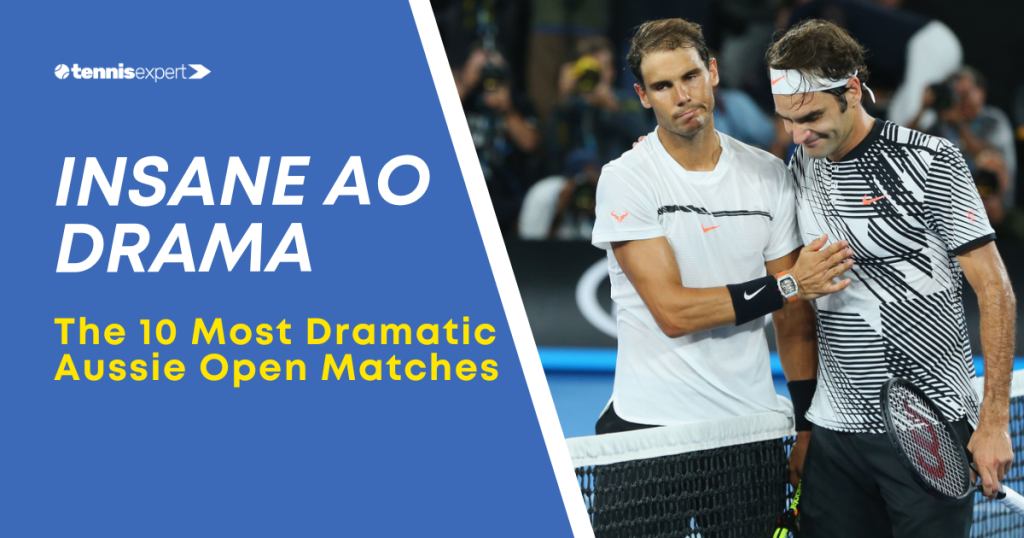The Australian Open, one of tennis’s most prestigious Grand Slams, has seen its fair share of drama over the years. From on-court outbursts to off-court squabbles, the tournament often finds itself as much in the spotlight for its controversies as for its high-quality tennis.
Whether it’s disputes over player behavior, the handling of the COVID-19 pandemic, or heated political debates spilling onto the courts, these incidents have sparked conversations among fans, players, and officials alike.
At the center of recent discussions has been Novak Djokovic, whose stance on vaccination and resulting visa issues have made headlines worldwide. The Serbian player’s situation has ignited a backlash and raised questions about fairness and the responsibilities of high-profile athletes.
On another front, the tournament has also seen support for missing players like Peng Shuai, demonstrating how tennis can become a platform for wider political expression. The Australian Open continues to navigate these challenges while attempting to maintain its focus on the sport itself.
John McEnroe Disqualified for Misconduct (1990)
John McEnroe made headlines at the Australian Open, not for a stellar performance, but for a moment that has since become part of tennis infamy. The American tennis player, known for his exceptional talent and fiery temperament, found himself at odds with the newly-introduced conduct rules.
During his match against Swede Mikael Pernfors, McEnroe’s frustration got the best of him. His outbursts and on-court behavior crossed the lines of acceptable sportsmanship, and officials were prompted to act.
The Consequences:
- First: A warning for intimidating a lineswoman
- Second: Point penalty for smashing his racquet
- Third: Game penalty for arguing with the chair umpire
McEnroe, unaware that a penalty system was in place, continued with his antics until the inevitable happened. After his third violation, he was disqualified from the tournament — a rare sight in Grand Slam tennis.
At 34 years old during the subsequent Australian Open, McEnroe reflected on the past incident. His disqualification at the Australian Open marked the first time since 1963 that a player was defaulted from a Grand Slam event. Prior to McEnroe’s default, such an action was virtually unheard of at this level of competition.
His actions and the resultant disqualification became a cautionary tale about the importance of sportsmanship and the seriousness with which tennis officials treated player conduct.
Petr Korda’s Positive Banned Substance Test (1998)

In 1998, the tennis world was shaken by the revelation that Petr Korda, the Australian Open champion that year, tested positive for a banned substance. He faced significant scrutiny following a drug test taken at Wimbledon which detected the presence of nandrolone, a steroid.
Following the positive test, Korda was subject to an appeals process by the International Tennis Federation (ITF). There was a notable moment when the ITF did not immediately suspend him; they took into account his defense that he was unaware of how the steroid entered his system.
Despite his appeal and the ensuing legal challenges, Korda’s career faced a setback. The Court of Arbitration for Sport (CAS) in Lausanne eventually confirmed a ban from the sport. The incident marked a controversial point in tennis history, highlighting the sport’s combat against performance-enhancing drugs.
Throughout the contention, opinions varied, but the official ruling by the CAS marked the end of the dispute, affirming Korda’s sanction for violating the sport’s strict anti-doping rules. This controversy served as a stark reminder to players about the importance of abiding by the drug regulations, and it remains a notable event in the history of tennis.
Juan Chela Accused of Spitting At Lleyton Hewitt (2005)
During the 2005 Australian Open, tensions flared in a third-round match between Australia’s Lleyton Hewitt and Juan Ignacio Chela of Argentina. The incident that caught attention was when Chela appeared to spit in the direction of Hewitt. This event promptly entered the list of controversies associated with the high-stakes tournament.
The match, already intense with competitive energy, boiled over when Chela’s frustration manifested in an action that is generally considered disrespectful in the sport. This led to a significant fine imposed on the Argentine player.
Outcome:
- Chela apologized to Hewitt for the incident.
- Hewitt accepted the apology and chose not to pursue the matter further.
- Chela received a fine by the tournament officials.
The Australin public and media took notice, as their national tennis figure was at the center of the controversy. Hewitt, known for his fierce competitiveness, managed to keep his cool in the heat of the moment, ultimately prevailing in the match.
It is episodes like these that have peppered the history of the Australian Open with not just displays of extraordinary athleticism but also moments of intense player rivalries and emotional outbursts.
Federer Getting Favorable Roof Conditions (2018)
During the 2018 Australian Open, a decision made by the tournament officials stirred up controversy in the tennis community. The men’s final was played under a closed roof, a move that some fans and critics believed offered an unfair advantage to Roger Federer.
On that Sunday night, the Melbourne weather was causing a fuss, with extreme heat policy coming into play. The officials decided to shut the retractable roof of Rod Laver Arena, citing the brutal combination of temperature and humidity.
Marin Cilic, the opponent in the final, found himself at the short end of the stick. The match unfolded with Federer winning in five sets, but Cilic pointed out that the closed roof could have influenced the outcome.
Here’s a breakdown of the scenario:
- Temperature & humidity: The trigger for invoking the extreme heat policy
- Decision: Closed roof for the men’s final
- Reaction: Mixed feelings, with some citing bias towards Federer
- Federer’s take: Even the Swiss maestro expressed surprise at the roof closure
- Cilic’s stance: Believed that the conditions played a role in the match result
This decision left tennis fans divided. While some argued it was necessary for player safety, others felt it gave Federer an edge, adding another layer to the storied history of the Australian Open.
Novak Djokovic’s Father Posing with Russian Fans (2023)
In January 2023, during the Australian Open, an incident involving Srdjan Djokovic, father of tennis star Novak Djokovic, created a stir. Srdjan was recorded in photographs and video footage with fans who showed support for Russia. These fans were carrying the Russian flag, which had the image of Vladimir Putin.
Following the event, there was immediate reaction from several quarters. Ukrainian officials expressed their displeasure, labeling the scene a “disgrace.” In response to the unfolding events, the Australian Open officials quickly reiterated their policy on political symbols to players and their teams. They emphasized the tournament’s stance on keeping the sport free from political demonstrations.
Srdjan Djokovic later implied that his involvement was not meant to cause any disruption or to convey a political message. However, the images had already circulated widely, leading him to make the decision to be absent from Novak Djokovic’s semifinal match in an attempt to keep the focus on tennis and not on controversy.
Introducing The Tennis Expert, your insightful guide into the world of tennis. With a passion for the game that started in childhood, they have dedicated years to studying and understanding every nuance of tennis. Their keen eye for detail and deep knowledge of the sport's strategies, history, and evolving trends make them a reliable source for tennis enthusiasts. Whether breaking down a classic match or offering tips for players, The Tennis Expert combines a fan's love for the game with an analyst's eye.





